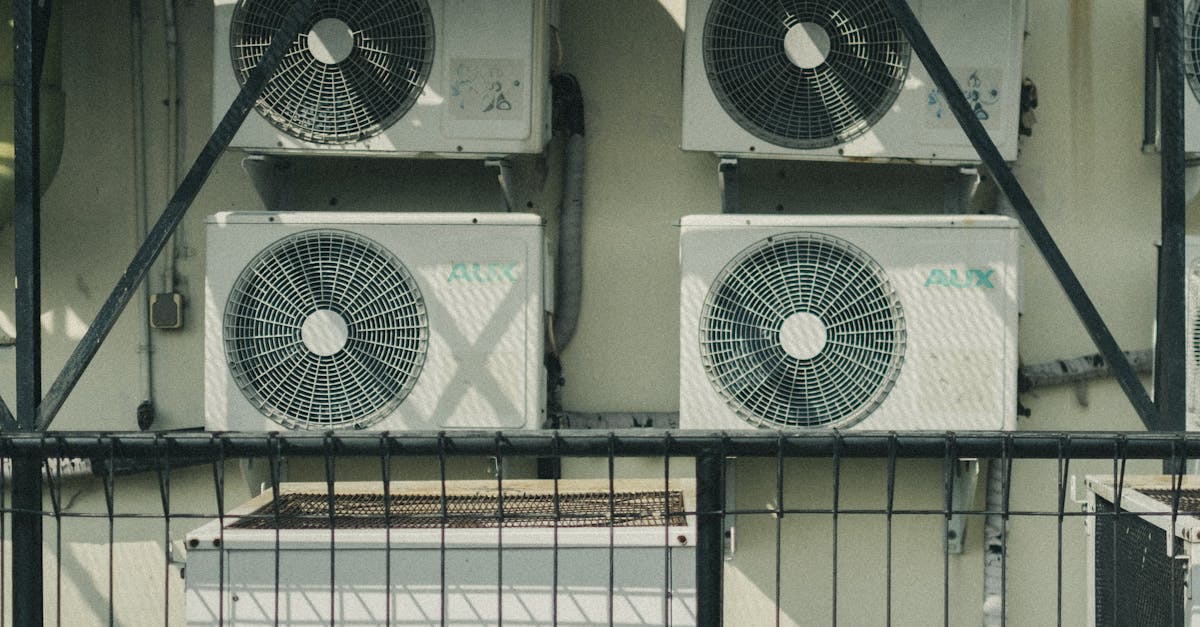
Roundup of Innovations in Refrigeration Technology
The Role of Artificial Intelligence
Artificial Intelligence is transforming the landscape of refrigeration technology by enhancing efficiency and optimising performance. Systems now leverage AI algorithms to assess and analyse vast amounts of data, leading to improved decision-making processes. Machine learning models allow for real-time monitoring of temperature and humidity, helping businesses ensure that products remain within ideal storage conditions. This automation reduces the risk of human error and contributes to more consistent operations.
Moreover, AI facilitates intelligent energy management systems capable of predicting energy needs based on historical usage patterns. By analysing various factors such as external temperature changes and occupancy levels, these systems can adjust cooling capacities dynamically. This capability not only saves energy but also prolongs the lifespan of refrigeration units. Businesses benefit from reduced operating costs and increased sustainability, contributing to a more environmentally friendly approach to refrigeration.
Predictive Maintenance Applications
The integration of artificial intelligence in refrigeration technology has led to significant advancements in predictive maintenance applications. By utilising machine learning algorithms, these systems can analyse data from various sensors and predict potential failures before they occur. This proactive approach not only minimises downtime but also reduces costs associated with emergency repairs and replacements.
Implementing predictive maintenance strategies improves the reliability of refrigeration units. Regular monitoring and timely interventions ensure optimal performance, which extends the lifespan of the equipment. This results in enhanced efficiency and conservation of energy, aligning with the growing demand for sustainable operations in the industry.
Mobile Refrigeration Units
Advancements in mobile refrigeration units have significantly transformed logistics and food distribution industries. These units offer the flexibility to transport perishable goods over long distances while maintaining optimal temperatures. With increasingly stringent regulations around food safety, businesses rely on these transport solutions to ensure compliance and protect the integrity of their products during transit.
The introduction of portable cooling solutions has become essential in various sectors, from catering to pharmaceuticals. These units can easily be deployed in remote areas or during large events, providing quick and reliable access to controlled environments. Innovations in insulation and energy efficiency have further enhanced their performance, making them a popular choice for both temporary and long-term refrigeration needs.
Portable Cooling Solutions
The need for reliable cooling solutions on the go has led to the development of innovative portable refrigeration units. These devices cater to various sectors, including food service, pharmaceuticals, and outdoor events. Lightweight designs enhance portability, enabling users to transport them with ease. Some models feature battery-operated options, providing flexibility for remote locations without access to electricity.
Advancements in insulation materials have improved the efficiency of these portable units. Enhanced energy conservation ensures that temperature control remains stable even during extended use. Additionally, smart technology integration allows users to monitor and adjust settings via mobile applications. This combination of convenience and efficiency makes portable cooling solutions increasingly popular in diverse applications.
Sustainable Refrigeration Practices
Adopting sustainable refrigeration practices has become essential in reducing environmental impact. Companies are increasingly focusing on eco-friendly refrigerants that have lower global warming potentials. These alternatives help minimise harmful emissions while maintaining efficiency. Innovations in thermal insulation materials also contribute to enhanced energy savings. Enhanced designs lead to better temperature retention and reduced energy consumption.
The integration of renewable energy sources into refrigeration systems marks a significant advancement. Solar-powered cooling systems and wind energy are being explored to diminish reliance on fossil fuels. This shift not only reduces greenhouse gas emissions but also promotes energy independence. As the demand for sustainable solutions grows, the refrigeration industry continues to evolve, ensuring more environmentally conscious practices become standard.
Reducing Carbon Footprint
The refrigeration industry stands at a critical juncture where the need for sustainable practices is more pressing than ever. Innovators are focusing on eco-friendly refrigerants that minimise harmful emissions while maintaining efficiency. Many companies are transitioning from hydrofluorocarbons (HFCs) to natural refrigerants like carbon dioxide, ammonia, and hydrocarbons. These alternatives have a lower global warming potential and are increasingly recognised as viable options for a range of applications in both domestic and commercial settings.
Energy efficiency also plays a vital role in diminishing the carbon footprint associated with refrigeration systems. Advanced technologies such as variable speed compressors and energy management systems allow for significant reductions in electricity consumption. Implementing smart controls can optimise refrigeration cycles based on demand, substantially lowering energy use. This holistic approach not only decreases greenhouse gas emissions but also results in reduced operating costs for businesses, making sustainability an economically sound choice.
FAQS
What are the key innovations in refrigeration technology discussed in the article?
The article highlights innovations such as artificial intelligence applications for predictive maintenance, advancements in mobile refrigeration units, and sustainable refrigeration practices aimed at reducing carbon footprints.
How does artificial intelligence contribute to refrigeration technology?
Artificial intelligence enhances refrigeration technology by enabling predictive maintenance applications, which help in anticipating equipment failures and optimising performance, leading to increased efficiency and reduced downtime.
What are mobile refrigeration units and why are they important?
Mobile refrigeration units are portable cooling solutions that provide flexible and efficient refrigeration options for transporting perishable goods. They are essential for ensuring food safety and maintaining product quality during transit.
What sustainable practices are being adopted in refrigeration technology?
The article outlines sustainable refrigeration practices such as using eco-friendly refrigerants, improving energy efficiency, and implementing systems designed to minimise environmental impact and reduce carbon footprints.
How can businesses benefit from innovations in refrigeration technology?
Businesses can benefit from innovations in refrigeration technology by reducing operational costs, enhancing product preservation, improving sustainability efforts, and leveraging advanced technologies for better resource management.
Related Links
Review of Top Refrigeration Systems for Industrial UseHow to Choose the Right Refrigeration System for Your Industry
Why Refrigeration Systems Are Essential in Food Safety
10 Benefits of Advanced Refrigeration Systems for Businesses
Why Energy-Efficient Refrigeration Matters for Sustainability
Historical Evolution of Refrigeration Systems in Industry
What to Consider When Upgrading Your Refrigeration System
What to Know About Modern Refrigeration Technologies